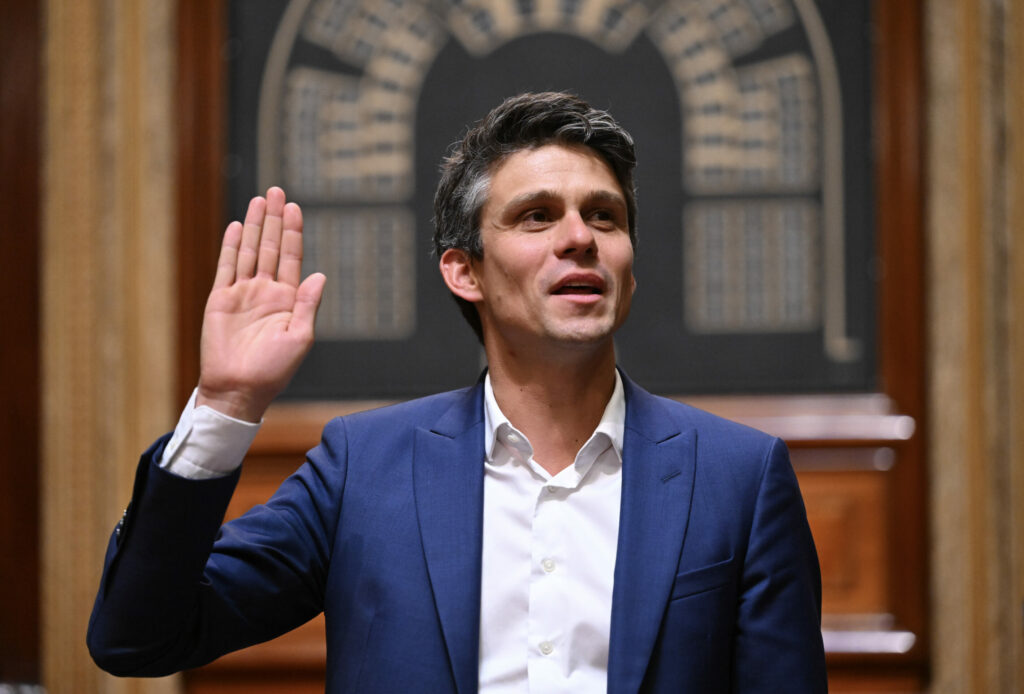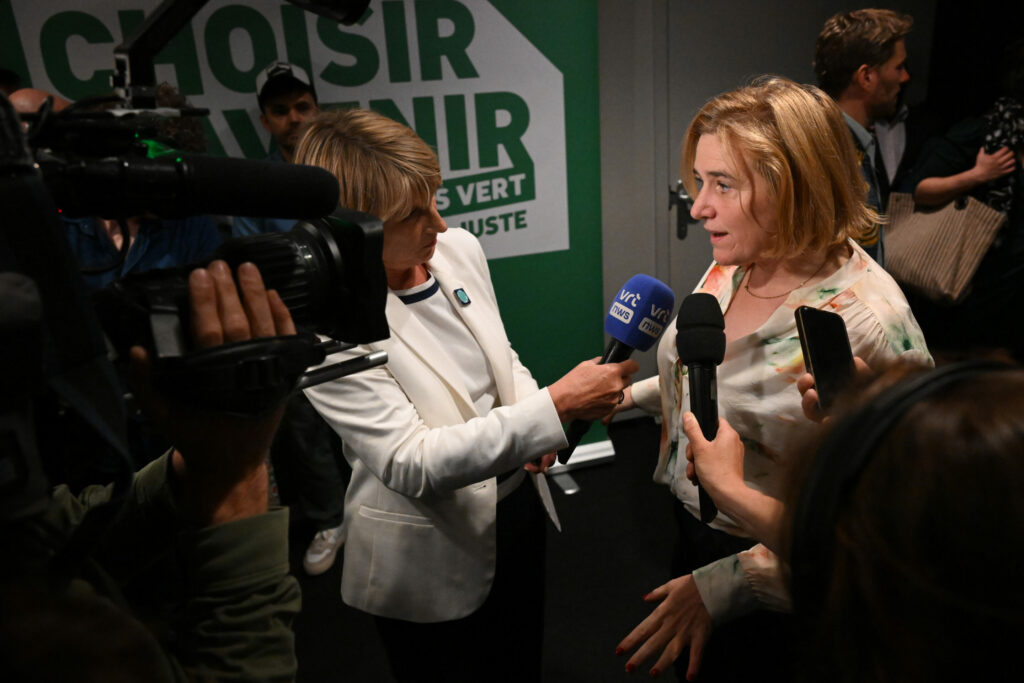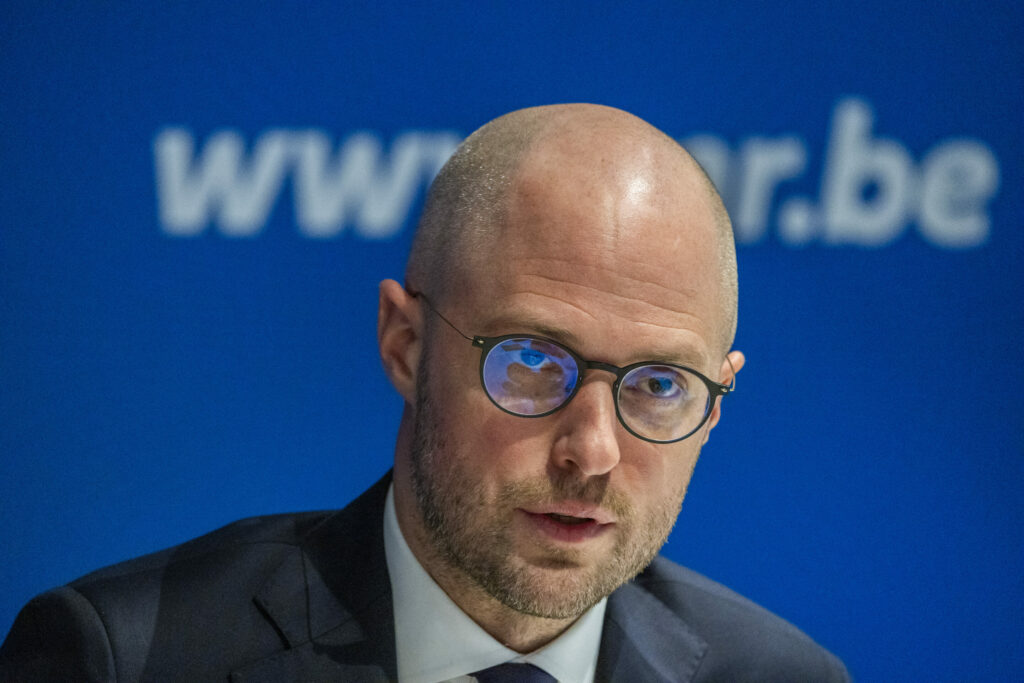It has been eight months since Belgium's elections in June, and while governments have now been formed in Flanders and Wallonia and even at the federal level, the negotiations in Brussels are still deadlocked. And time is running out.
Last week's shootings in Brussels – and the response from the authorities – have shone a light on the ongoing power vacuum in the Brussels-Capital Region.
After months of unsuccessful back-and-forths between political parties, government formator on the French-speaking side David Leisterh (MR) announced on 7 February that he would be holding "last-chance" formation talks for two weeks.
On Sunday evening, he sent a letter to the leaders of the three French-speaking parties PS (socialists), Ecolo (greens) and DéFI (regionalists), urging them to help bring Brussels out of its historical crisis. "After a week of consultations, it became clear that the Flemish coalition of Groen, N-VA, Open VLD and Vooruit was the only option," he wrote. On Monday morning, both PS and Ecolo declined.
Last week, Leisterh held talks with all political parties except the Belgian Workers' Party (radical-left), Team Fouad Ahidar (centre-left breakaway party) and Vlaams Belang (far-right) – all previously vetoed by the French-speaking liberals. Now, he has one more week to find a solution.
He started talks with his Dutch-speaking counterpart, formator Elke Van den Brandt from Groen (Flemish greens) last Monday. He then met with the other Dutch-speaking parties Open VLD (liberals), CD&V (Christian democrats), Vooruit (socialists) and N-VA (right-wing Flemish nationalists). Then, the French-speaking parties had their turn, starting with PS (socialists) on Wednesday, and finally Ecolo (greens) and DéFi (centrists) in opposition.
If there is no breakthrough in the political impasse by Friday, Leisterh said he was "ready to draw all the necessary conclusions" and throw in the towel as formator.
What is the problem?
Like many things in Brussels, the formation of its regional government is complicated by language, and as with all Belgian governments, a coalition is needed. In the case of Brussels, two separate coalitions need to be found within both French and Dutch-speaking linguistic groups.
Once found, the two linguistic sides then need to find a joint coalition agreement to form a new regional Brussels Government. This, however, is exactly where the shoe pinches.
Last summer, the French-speaking parties were quick to find a coalition in their linguistic group: MR (liberals), Les Engagés (centrists) and PS (socialists) agreed to stick together – giving them 44 seats of the 72 in Parliament reserved for French speakers.

MR's David Leisterh (left), Les Engagés' Christophe De Beukelaer (middle) and PS' Ahmed Laaouej. Credit: Belga/James Arthur Gekiere
On the Dutch-speaking side, however, the situation was more complex. The parties struggled to find a majority (nine of 17 seats) for a coalition in their linguistic group.
This is because there are only three ministerial positions to distribute between a coalition that would likely comprise four parties – a complication that would leave one party without a minister or state secretary, and therefore without a say in government decisions.
Formator on the Dutch-speaking side, Elke Van den Brandt (Groen) first brought together her party with Open VLD and Vooruit. However, they have eight seats of the 17 reserved for Dutch speakers, meaning one party was still missing to form a majority.
They initially turned to CD&V, who declined the invitation to join because Benjamin Dalle wanted a ministerial position. As the Flemish Christian democrats would have been the smallest party in the Dutch-speaking coalition, it would have missed out on one.

CD&V's Benjamin Dalle. Credit: Belga / John Thys
After months of stand-still, Flemish liberals Open VLD then announced that it would be willing to "sacrifice itself" and become the fourth partner in the alliance, but only if the Flemish right-wing N-VA party joined. Instead of a minister or state secretary, Open VLD would settle for a government commissioner responsible for the budget.
This would result in an alliance between Groen, N-VA, Open VLD and Vooruit, who together have ten of the 17 seats for Dutch speakers in the Brussels Parliament.
Growing optimism did not last long, however. The French-speaking socialist PS issued a veto against N-VA and left the negotiating table after it became clear that the Dutch speakers would not budge.
In theory, the French-speaking side has no say in the Dutch-speaking majority (and vice versa). However, all parties in both majorities will have to find a coalition agreement and then work together to implement it, meaning they do still need some degree of political and ideological convergence.

Groen's Elke Van den Brandt. Credit: Belga/David Stockman
This means that the negotiations have been stuck since PS left the table. Reportedly, the French-speaking socialists wanted to swap N-VA for CD&V – who previously declined.
After his talk with Leisterh last Tuesday, Dalle told reporters that he was willing to work towards a breakthrough and did not rule out joining the Brussels Government without N-VA, but only after a fundamental change in the government's direction on the budget, security and cleanliness, and if the party is given a full role.
While PS called this a step in the right direction, Open VLD immediately stressed that they would not "unstick" themselves from N-VA, saying that there is no scenario in which the Flemish liberals would be prepared to swap them for another party.
On Friday, N-VA then called on French-speaking socialists and green parties PS and Ecolo to come to the table to form a government, warning that failure to do so would worsen the current chaos.
What happens if nothing comes out of these talks?
Leisterh made it clear that he would resign from his position as formator if these last-chance talks did not lead to anything. This would bring talks back to square one.
According to the Belgian system, the party that won the second-most votes would get the opportunity to lead a new round of conversations. In this case, however, that would be PS – which has already made its position very clear.
In their response to Leisterh's letter on Sunday evening, Ecolo and PS declined the invitation to join the talks, accusing him of being biased.
"The liberals are imposing two axes: the one with Les Engagés on the French-speaking side and N-VA on the Flemish side, then calling on the others to take their responsibilities," said Ecolo. "I have never seen such a biased formation mission. Who is really behind it?"
What will happen if Leisterh quits as formator remains unclear.

